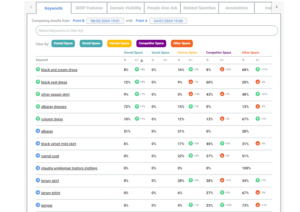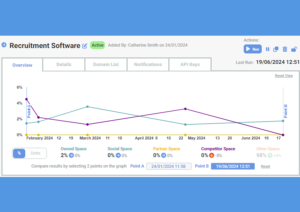Google I/O 2023, the annual Google Developer conference, took place on 10th May 2023, and following the keynotes and announcements, social media was awash with comments about the death of the SERP as we know it. Page one no longer mattered.
But really Google I/O presented an evolution, not a revolution of page one of search results.
Wired sums up the 10th May announcements succinctly. Firstly, Google isn’t taking immediate steps to replace its current search engine. Rather it’s launching an experimental version separately. This version will only be accessible in the US for the time being, via a new feature called Search Labs (note you’ll be told it’s not available for your account if you’re not based in the US).
So, page one isn’t dead and gone just yet…
Users will still be expected to type a query, and rich features will continue to be presented in the results. However, in Search Labs, some queries will trigger Google’s AI (Bard), giving an enhanced rich snippet at the top of the page. Users can continue a conversation with Bard to get more specific answers to their questions.
But essentially, that AI feature is still part of page one. And no, it won’t appear for every search. And yes, it might take up a lot of real estate on the page but there still will be other “traditional” features served by Google, just fewer of them. Page one real estate will become even smaller (a continuation of what many predicted would happen following other Google updates).
As Aleyda Solis mentioned in her tweet thread, business and commerce sites should turn out to be the winners because of their prominence in being mentioned in the AI answer. The challenge for SEOs will be to ensure that their brand’s content is presented by the AI. Capturing that feature will require a smart approach, just as was necessary for capturing space in PAA or an enhanced organic snippet.
Will page one real estate still matter?
Organic position #1 falls below the fold if the AI feature appears in a SERP. And there will be much less space to fight for, fewer clicks to capture as people will be getting their answers in-SERP, a shift that’s already happened in many cases.
So capturing that even smaller bit of real estate becomes crucial for brand visibility and customer recognition. To win that smaller amount of page one space will drive fierce competition in SEO. With scarce space and lots of people fighting for it, SEO teams will need to be very clear about where to focus.
It’s likely that the Bard feature won’t appear for every search query, so identifying when it does or doesn’t for each of your keywords is crucial to understanding how to dominate the search results.
We’ll be watching this evolve very closely and, once widely available, will add the AI search feature as another block in our page one visualisations, alongside organic, shopping, maps etc. Our aim will be for users to see which of their keywords trigger the AI search and which don’t, so that SEO content and technical efforts are driving the right outcomes.




